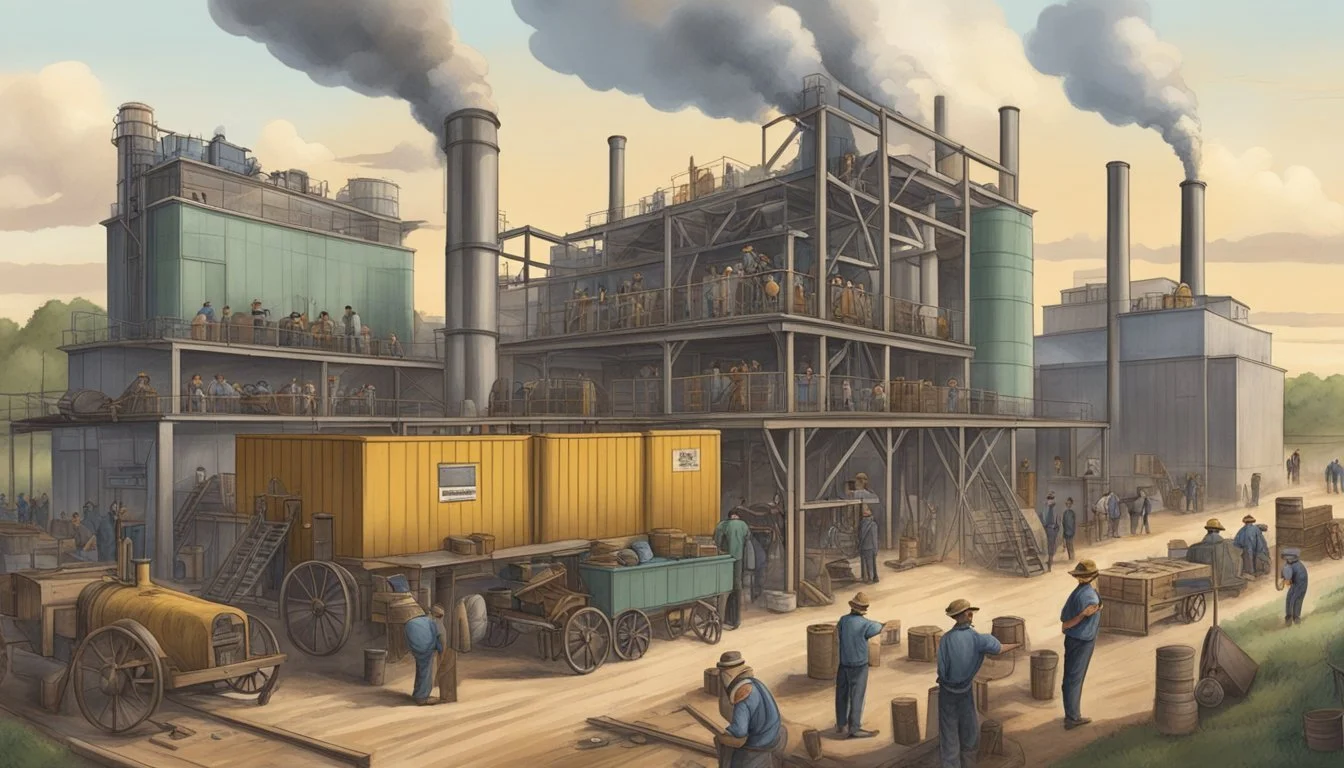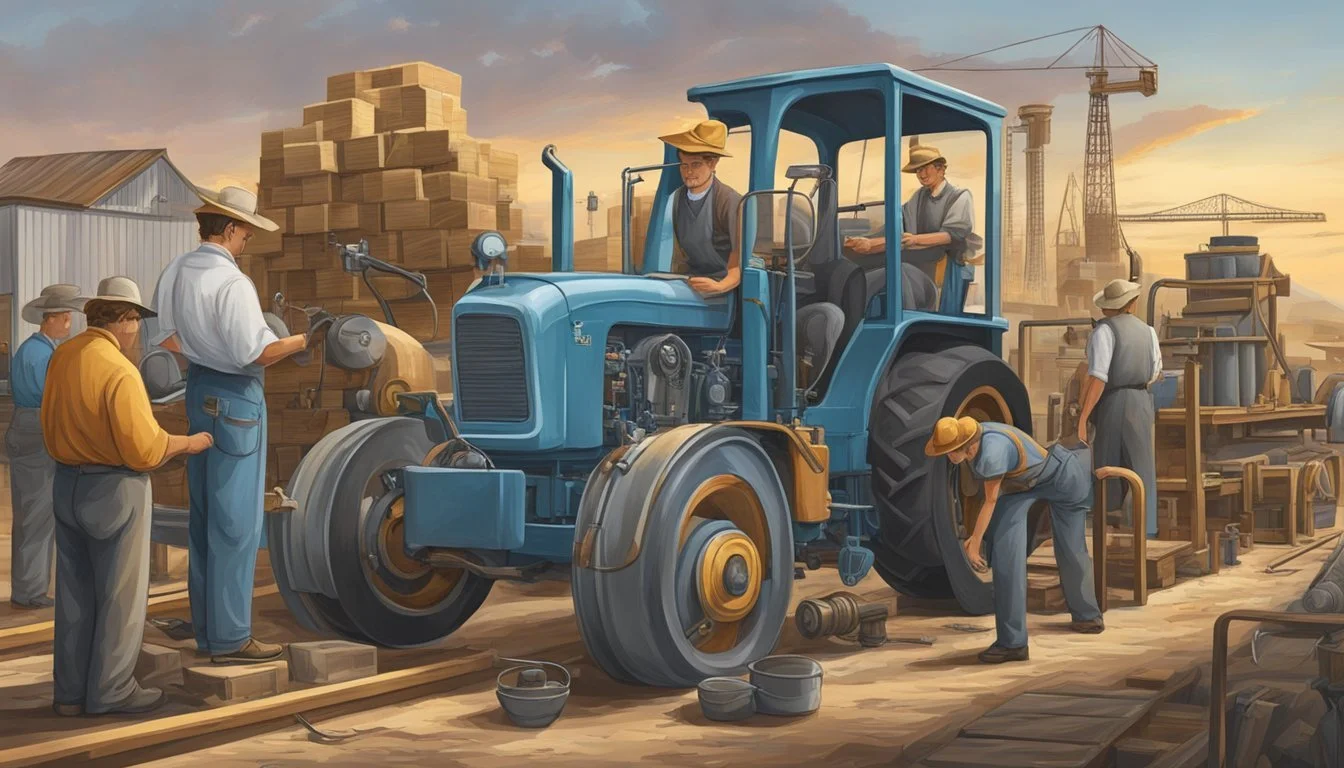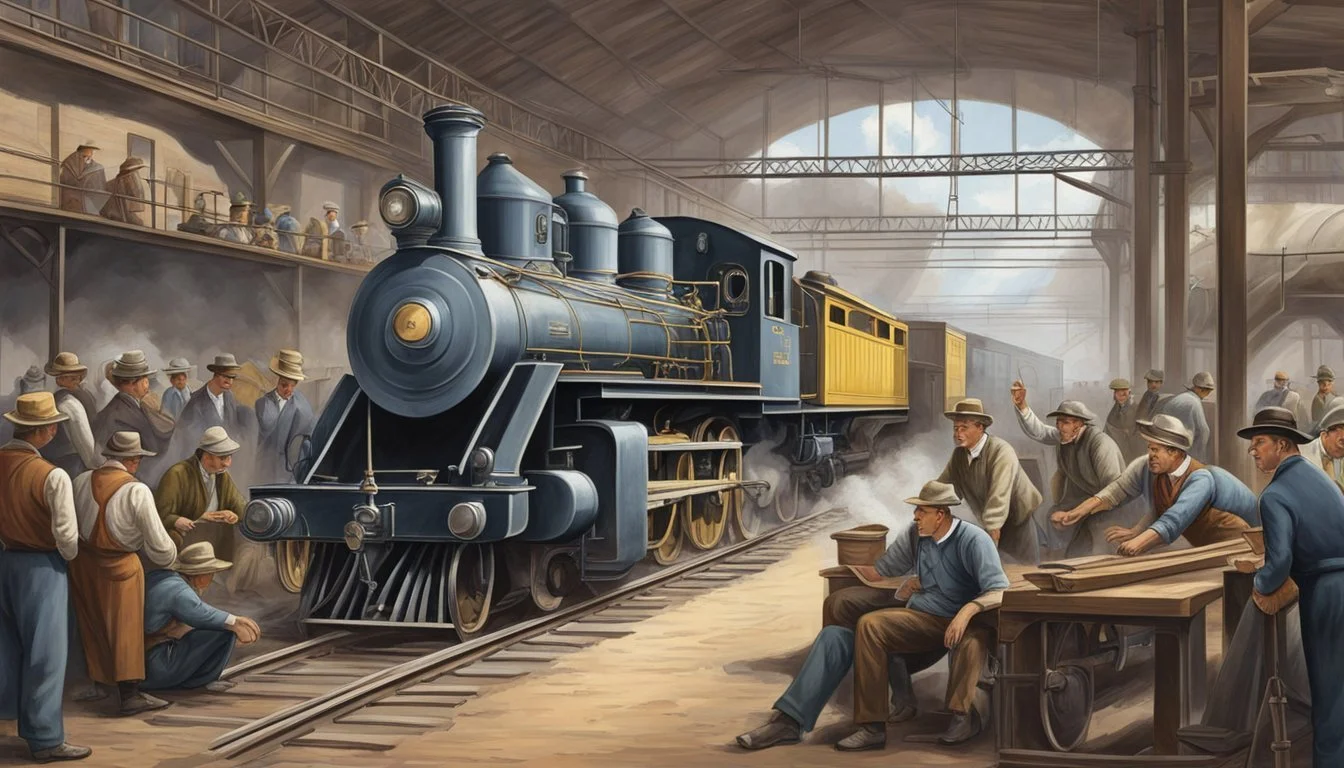The Influence of German Immigrants on Texas Industry
Economic and Cultural Impact
The intersection of German immigrant culture with the development of Texas is a narrative deeply woven into the state's history. Since the early 19th century, German emigrants have arrived in Texas, bringing with them a set of skills, traditions, and perspectives that have significantly influenced various aspects of Texan life, including its industry. From the 1830s, when the first German settlers made Texas their home, to the peak of migration in the 1840s, Germans began to lay the foundations for lasting impacts on the region’s agriculture and industry.
The contribution of German immigrants to Texas goes well beyond the cultural tapestry of the state; their influence is notably evident in the industry. The settlers introduced farming techniques, knowledge of craftsmanship, and an ethos of hard work that translated into the establishment of businesses and agricultural practices, which had a ripple effect on the burgeoning Texan economy. Their proficiency in various trades and the establishment of robust communities fostered an environment where industry could thrive.
During times of considerable growth, such as the late 1800s, German immigrants were instrumental in advancing the Texan agricultural sector. Their legacy is also present in contemporary Texan industries where traces of German innovation and steadfastness continue. The multifaceted impacts resulting from this migration have become a crucial chapter in the story of Texas, demonstrating how the emigration of a single ethnic group can alter the trajectory of a region's economic and cultural landscape.
Historical Context of German Immigration to Texas
German immigration to Texas significantly shaped the state’s industry, culture, and demography, with early settlements becoming hubs of German heritage and influence.
Early Settlements and Founding Figures
German influence in Texas began with figures like Friedrich Ernst, often referred to as the "Father of German Immigration to Texas," who arrived in the 1830s. His glowing letters to Germany described Texas as a land of opportunity, prompting a wave of German settlers. The first permanent German settlement was established in the City of Industry in 1831. Over time, New Braunfels and Fredericksburg became prominent German communities, serving as economic and cultural centers for the growing German population in Texas.
Adelsverein and Land Policies
The Adelsverein, officially the Verein zum Schutze deutscher Einwanderer in Texas (Society for the Protection of German Immigrants in Texas), was formed by a group of German nobles with the aim to facilitate a mass emigration of Germans to Texas. They arranged land grants and organized the settlement of thousands of German peasants, who were seeking to escape economic hardships in Germany. The society's land policies encouraged the establishment of settlements that would become cornerstones of the Texan economy and culture.
Role in the Republic and Civil War
During Texas' time as a Republic and through the Civil War, German immigrants played a crucial role. Many who arrived sought to escape political turmoil in Europe and brought with them ideals of democracy that influenced local politics. During the Civil War, Germans in Texas had a complex relationship with the Confederacy, with many opposing secession due to their liberal beliefs. Their communities often became targets of suspicion and conflict during this tumultuous period. Their settlements, however, continued to thrive and expand, laying the groundwork for future industry and cultural richness in Texas.
Economic Contributions of German Immigrants
German immigrants significantly contributed to the economic development of Texas through enhancing agriculture, trade, and fostering industry and urban growth.
Agriculture and Trade Growth
German settlers in Texas established prosperous communities by utilizing vast tracts of land to develop agriculture and engage in trade. Henri Castro, a notable figure, brought over 2,000 settlers to develop Medina County. These settlers transformed the region, introducing efficient farming techniques and cash crops which, in turn, supported localized trade growth. Moreover, Clay County saw similar transformations with German farmers promoting a diverse agricultural economy.
German immigrants were instrumental in opening trade routes, notably with the Comanche, which facilitated the movement of goods. The establishment of Indianola by Germans as a port city further exemplified their influence on transportation and trade.
Industry and Urban Development
The German Emigration Company played a pivotal role in urban development. Under the leadership of figures like John O. Meusebach, German immigrants founded towns and introduced various industries to the Texas frontier. German expertise in various trades and crafts led to the development of factories and businesses, bolstering local economies.
In cities like New Braunfels and Fredericksburg, German culture intermingled with Texan customs, creating a distinctive and dynamic atmosphere that attracted additional settlers and investors. They also laid groundwork for a transportation network that facilitated industry and helped urban centers to thrive.
Social and Cultural Impact
German immigrants significantly influenced the religious community life, media, and cultural traditions within Texas. They contributed to the state’s diversification, bringing unique elements from their heritage that were assimilated into the broader Texan society.
Religious and Community Life
German settlers in Texas sought religious freedom and formed tight-knit communities to maintain their cultural identity. The Society for the Protection of German Immigrants in Texas, known as the Adelsverein, was instrumental in supporting the welfare of these immigrants. The Adelsverein helped ensure colonization rights, directly impacting towns like Boerne, Schulenburg, and Muenster, which became known as part of the "German Belt". These communities were often characterized by a dominant personality of communal welfare and solidarity.
Media Influence: Books and Newspapers
Media played a pivotal role in shaping the German Texans' cultural identity. Books such as "Reise nach Texas" (A Journey to Texas) documented immigrant experiences and inspired others to consider the move. Newspapers, both in German-language and English, flourished in the German Texan clusters, with America letters published to encourage and guide new immigrants. This circulation of printed media not only kept the community informed but also helped preserve German culture in Texas.
Traditions and Integration into Texas Society
Integration into Texas society did not mean the loss of German traditions. The German Texans established events such as the Easter Fires of Fredericksburg, a tradition that continues to draw visitors. Newspapers served as a critical platform for announcing local German-Texan events and festivals, which have become part of the greater cultural landscape of Texas. German immigrants' practice of settling in clusters helped them retain their cultural identity, ensuring a lasting impact on Texas' social and cultural fabric.
Challenges in Migration and Settlement
The German immigrants encountered various obstacles as they established themselves in Texas. These included difficulties with local populations, changing economic and political landscapes, and environmental as well as health challenges.
Navigating Conflicts with Native Tribes
German settlers often faced resistance from Native American tribes who were the original inhabitants of the land. Chain migration intensified this issue as more Germans arrived based on the successes of those who came before them. The groups clashed over territory, which sometimes disrupted the settlers' ability to build their communities and utilize the land for agriculture and settlement.
Adapting to Economic and Political Changes
The German immigrants in Texas had to adapt to shifts in the economic and political context, such as the fallout from the Union blockade during the Civil War, which challenged their trade and supply lines. Additionally, efforts like the Fisher-Miller Grant promised lands that required significant work to develop. They acquired the means of transportation, such as horses, and navigated the complex processes to secure land, often influenced by entities like the Adelsverein, or the Nassau farming and protection association.
Coping with Environmental and Health Issues
German settlers contended with Texas's harsh environment, which was very different from their homeland. Transportation of immigrants from coastal areas inland proved arduous. In the 1850s, for instance, thousands of Germans were stranded at Indianola due to difficulties in transporting them to settlements such as New Braunfels, which was 150 miles inland. They also had to manage health issues that arose from the new environment, including disease and the scarcity of clean water or sufficient food during their initial settlement.
Legacy and Influence on Modern Texas
German immigrants have left a significant mark on Texas industry, shaping its culture and economic landscape over time. These early settlers brought with them a range of skills and traditions that became interwoven into the fabric of Texan society.
Cultural Contributions:
Music: They introduced classical and opera music, enriching the Texas cultural scene.
Cuisine: Biergartens and breweries became popular, with the latter significantly boosting the local economy.
Architecture: Distinct German building styles can still be found in historic neighborhoods.
Economic Impact:
Agriculture: German immigrants engaged heavily in farming, thus enhancing agricultural diversity.
Commerce: They played a role in the development of businesses, laying down a foundation for future economic growth.
The influence of German descendants persists in modern Texas. It is reflected in annual celebrations such as Oktoberfest, which draw visitors statewide, further contributing to the economic vitality.
Language and Education:
Language: German influence is evident in the persistence of German language pockets in certain Texan communities.
Education: They valued education, leading to the establishment of numerous schools and contributing to Texas's educational system.
Industry and Technology:
German-Texans were instrumental in advancing various industries, incorporating European technology and craftsmanship into Texan society. Their work ethic and innovations have played a key role in the state's development.





